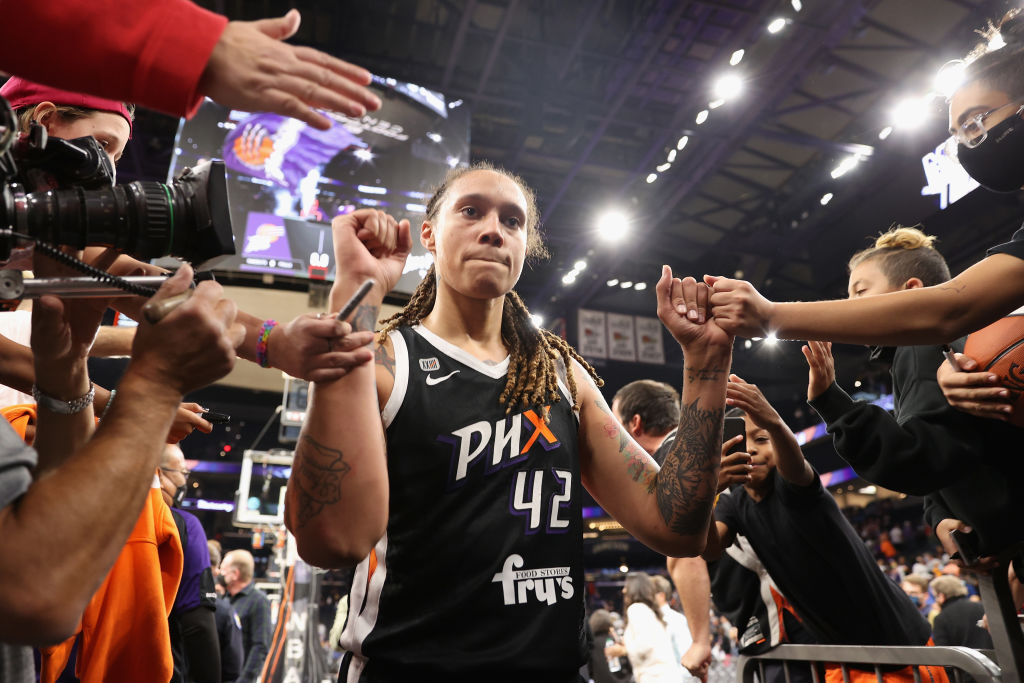The New York Times reported yesterday that WNBA star Brittney Griner, who was playing for UMMC Ekaterinburg in Russia during the WNBA offseason, has been detained by Russian authorities on drug charges. The Times report followed a statement from the Russian Federal Customs Service, which said that an American basketball player had been detained after vape cartridges containing hashish oil had been found in her luggage at Sheremetyevo airport. The agency also released a video showing Griner going through airport security and having her bag searched.
It's unclear for exactly how long Griner has been in detention, as the Russian Customs Service only revealed that Griner's bag was searched some time in February. Griner's agent confirmed to the Times that her client is currently being held by Russian authorities, and yesterday Griner's wife addressed the situation in an Instagram post. Griner's detention is of course made even more fraught by the current strain on Russia and America's diplomatic relationship, stemming from Russia's invasion of Ukraine and the heavy sanctions that the United States has placed on Russia in response. The U.S. State Department has for weeks been warning Americans against traveling to Russia due to the U.S. embassy's limited ability to assist Americans in the country.
Why Griner was in Russia in the first place is a question that the WNBA will have to answer. The league's low salaries and minimal efforts towards player support have for years forced even its biggest stars to treat their time in the WNBA as a part-time job. The maximum WNBA salary in 2022 was just over $228,000, and players can make far more than that playing in leagues overseas. In 2015, Diana Taurasi was paid $1.5 million to skip the WNBA season entirely and play for UMMC Ekaterinburg, and Liz Cambage recently revealed that she has made "five to eight times" as much money playing overseas than she has in the WNBA.
The WNBA and the players recently signed a new CBA which contained some improvements meant to reduce the need for players to spend their offseasons playing outside the U.S., but the larger structures that got the league to this point remain in place. As Cambage has wisely pointed out, it's absurd for the league to be set up in such a way that a prized head coach like Becky Hammon can sign a $1 million contract while the salaries of the best players in the league are artificially capped at less than a quarter of that amount. It is equally absurd when the league responds to a billionaire team owner springing for charter flights in order to keep his players happy by fining that owner $500,000 and threatening to terminate his franchise.
That WNBA players continue to be forced to make their real livings by spending their winters in far-flung places is less an issue of economic realities than one of organizational will. If the WNBA really wanted to be what it claims it is, the best and most prestigious women's basketball league in the world, then it could reconstruct itself in a way that wouldn't allow for it to be continually outspent by much smaller European leagues. The consequence for that failure has thus far been the embarrassment of having to watch its star players decamp to Russia every year and do things like become a Bosnian citizen. But now that the league has seen one of its best and most famous players detained on trumped-up charges and potentially thrown into the middle of an international conflict, the consequences are much more severe. And the need for change is much more urgent.





